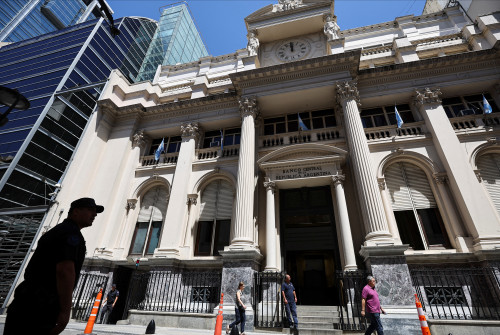LONDON (Reuters) – U.S. Secretary of State Antony Blinken said he would set out a new assistance package for Ukraine on Wednesday at a conference aimed at encouraging private companies to invest in the country’s reconstruction after Russia’s invasion.
Kyiv and London will host the Ukraine recovery conference in London on Wednesday and Thursday, when more than 1,000 foreign officials from over 60 states along with business chiefs and global investors will discuss ways to help the country rebuild.
“President Biden said … that we would stand with Ukraine for as long as it takes, and both of our countries are deeply committed to that,” Blinken told a press conference alongside British foreign minister James Cleverly on Tuesday.
“We will continue to deliver on that commitment, including through a new robust U.S. assistance package that I’ll be able to announce tomorrow.”
Both foreign ministers underlined the conference was focused on encouraging the private sector to use its resources to help speed Ukraine’s reconstruction but that Kyiv had to do its part by pressing on with reform and the world had to figure out a way to offer companies insurance against war damage and destruction.
“This week is very much about creating the conditions necessary for public sector money, of course, but predominantly private sector money to fund their reconstruction,” Cleverly said.
“Now, the precise details of how we do that, I don’t want to prejudge. The whole point of the next couple of days is that the UK uses its expertise as a global financial services centre, including as a global insurance centre, but also our convening power.”
Ukraine is seeking up to $40 billion to fund the first part of a “Green Marshall Plan” to rebuild its economy, including developing a coal-free steel industry, a senior Ukrainian official said before the conference.
The total bill will be huge, with Ukraine, the World Bank, the European Commission and the United Nations estimating in March that the cost was at $411 billion for the first year of the war. It could easily reach more than $1 trillion.
(Reporting by Sachin Ravikumar, writing by Elizabeth Piper and Muvija M, editing by William James and Kate Holton)





